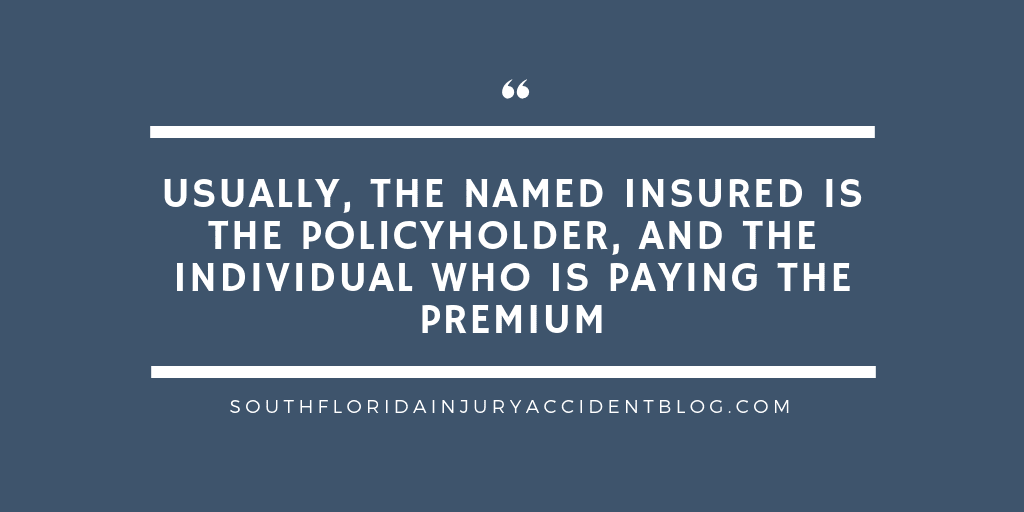Last Update: 01/07/16
The simple facts about car insurance in Florida is that all drivers are required to have a minimum amount of insurance coverage (even though most drivers choose to have coverage that exceeds the minimum legal requirements – Read our earlier posts on coverage requirements) and everyone gets insurance coverage the same way: by shopping around between insurance companies and deciding which company works best for you.
Then, once you chose your insurance company, you enter into a contract with that company for a set amount of money (your “premium”) and in exchange that insurance company will provide insurance coverage for a set amount of time with certain liability limits.
Insurance Coverage – It’s All About The Contract Between You and the Company
 Your automobile liability insurance coverage is based upon a “standard” written contract, just like your car loan is a contract between you and a bank.
Your automobile liability insurance coverage is based upon a “standard” written contract, just like your car loan is a contract between you and a bank.
Contracts are governed by the written words and by state contract law. What the parties are bound to do for each other is defined within the contract itself. Accordingly, determining for whom the insurance company is required to pay damage claims is determined by the contract terms.
Insurance contracts are called “policies.” To learn who all may be covered by the insurance policy, you need to read the language of the contract, or policy, itself.
Who is The Named Insured in the Policy?
The insurance company’s policy will define who is the “named insured” in the contract. Sometimes, it is one person. Sometimes, it is more than one person, for example, a husband and wife.
Usually, the “named insured” is the policyholder, and the individual who is paying the premium. For example, Progressive has defined “named insured,” as:
Named Insured —
The first person in whose name the insurance policy is issued.
Language of the Insurance Policy Controls Who Is Covered
If there is an accident, and there is a controversy over whether or not the insurance policy covers the injured person, then the court will look to the language in the contract itself to decide what the policy covers. For instance, in a case where State Farm was balking on paying coverage in an accident, the Florida court looked to the insurance policy’s language:
The policy issued to Menendez expressly defines terms in the insurance policy that appeared in bold and italicized type. Specifically, the policy defines the following material terms and phrases:
Insured—means the person, persons or organization defined as insureds in the specific coverage.
Relative—as used in Sections I, III, IV and V means a person related to you or your spouse by blood, marriage or adoption (including a ward or foster child) who resides primarily with you. It includes your unmarried and unemancipated child away at school.
As used in Section II, relative means a relative of any degree by blood or marriage who usually makes his home in the same family unit, whether or not temporarily living elsewhere.. . . .You or Your—means the named insured or named insureds shown on the declarations page.

Named Insured Isn’t Always Clear (According to the Insurance Company) – There Can Still Be a Coverage Fight
Unfortunately, disputes still occur with insurance companies over whether or not they will honor a claim and pay damages, because the insurance company does not believe a party is a “named insured” — the answer here often requires an interpretation of whether or not the claimant fits within that definition under the insurance contract. Here’s where a lawyer experienced with personal injury matters can be very helpful.
If the battle with an insurance company turns to the coverage language within the policy to determine if the policy should extend coverage to others who are not specifically named in the policy, but who nevertheless should be covered under the contract according to Florida law, then having an experienced injury lawyer on your side with years of civil court room expertise is invaluable. Wives, children, and others living in the home may be covered here — but it may be a challenge to get the insurance carrier to agree to pay for their damages.
What Should You Do Now?
A good piece of advice if you have been harmed in an accident, is to at least speak with an experienced personal injury lawyer before you file a claim to learn about some of the issues that can arise with these claims, including the type of evidence needed to prove a claim and the type and amount of damages you can recover. Most personal injury lawyers, like Alan Sackrin, will offer a free initial consultation (over the phone or in person) to answer your questions.
Related:
_______________
 Do you have questions or comments? Then please feel free to send Alan an email or call him now at (954) 458-8655.
Do you have questions or comments? Then please feel free to send Alan an email or call him now at (954) 458-8655.
